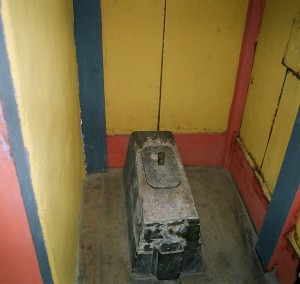Norovirus / Viral Gastroenteritis
January 17th, 2013There was a recent story on the 7.30 report about Norovirus. Most particularly about the new strain of Norovirus known as Sydney – because it was first reported here in Australia. This new strain is circulating in the USA and UK.
As the name implies this is a virus. Norovirus is notable because it is HIGHLY contagious, and it has the ability to change – a bit like the flu virus.
Norovirus causes a severe and very contagious gastroenteritis. It is the cause of 90% of gastroenteritis on cruise ships.
A person will show symptoms about 24 to 48 hours after first exposure to the virus. The illness usually lasts one to three days. Some people with norovirus infection may show no signs or symptoms. However, they are still contagious and may unwittingly spread the virus to others.
This virus is highly contagious for a few reasons
1. The number of particles that can cause an infection is very low (approximately 18 to 1000 viral particles)
2. The virus can withstand a wide range of temperatures (from freezing to 60°C) and persist on environ- mental surfaces, in recreational and drinking water, and in a variety of food items, including raw oysters and fruits and vegetables that are irrigated with sewage and are eaten uncooked.
3. Viral shedding precedes the onset of illness in up to 30% of exposed persons and may continue long after the illness, making it very easy to spread.
4. There is great diversity of norovirus strains, and persons who contract norovirus can get sick again from the same or different strains later in their life. There is no lifetime immunity.
There is no vaccine for Norovirus.
There are no medications to treat norovirus. Strict attention to personal hygeine is the only preventative measure.
CDC ( Centre for Disease Control ) in the USA has a useful page with more information on Norovirus.




